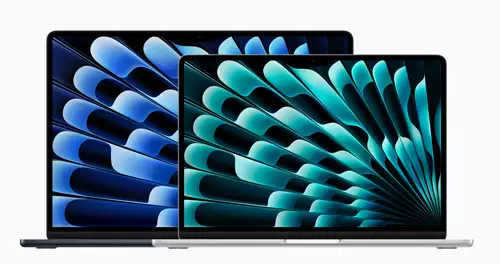Frage von TheDrummer:
Hi, folks!
..'m still a long while - so this noob () questions ...
CHROMA what?
which means 4:2:2?
what the difference is to 4:1:1?
Schonmal Thanks for your patience;)
MfG
Antwort von clint:

chroma = "farbigkeit" or "chroma"
In contrast to the luminosity = brightness
When
chroma keying are all image sections with the same
color values (usually blue or green rausgeschnitten).
Difference of 4:2:2 and 4:1:1?
4:2:2 = 1 and 4:1:1 = 4 ;-)
Look here:
http://www.slashcam.de/multi/Glossar/4-2-2-Abtastung.html
ciao
clint
Antwort von Bernd E.:

A good explanation in English with illustrations is here:
www.larryjordan.biz / articles / lj_sampling.html
Gruß Bernd E.
Antwort von TheDrummer:

THX for your quick response!
book now I have an inkling of what is at stake here - thank you!
(by 4:2:2 I have not searched * ashamed *)
how do I find out how my camera (for example, scans HC1)?
THX!
Antwort von Markus:
 how do I find out how my camera (for example, scans HC1)?
how do I find out how my camera (for example, scans HC1)? Questions is a possibility. The other is Google (see
example). ;-)
The HC1 uses synonymous of 4:2:0-Farbsamplings, just like MiniDV camcorder (SD, PAL).
Antwort von TheDrummer:

Questions is a possibility. True - what I've done synonymous in this forum, right? ;)
The other is Google (see example). ;-)
In order to achieve such results, one must know the technical term "Farbsampling" - like us very good show in your example ...
4:2:0 then means then, that one line is omitted and the color information in the next line simply derived instead ...
... and yet you get an HDV Resolutionmit razor sheep Picture and beautiful colors?
So for me it sounds like an "engineering marvel";)
but I have a question:
I thought a pixel consists of red and green light blue!?
But then that would look like, (4:2:2:2) or?
THX, people for your answers!
Antwort von Markus:
 In order to achieve such results, one has the technical term "Farbsampling know" ...
In order to achieve such results, one has the technical term "Farbsampling know" ... Nope, that is synonymous with known quantities (the new
instance). ;-)
I thought a pixel consists of red and green light blue!? But then that would look like, (4:2:2:2) or? If there is a pixel of red, green and blue, you need no more brightness information. The fact is defined by the RGB values already. See synonymous:
RGB-FarbmodellAnders in der Videotechnik: Da werden oft die Farbinformationen reduziert, während die Resolutionder Helligkeit beibehalten wird. Das geht aber nicht mehr with RGB, sondern nur with einem Trick: Speicherung of Helligkeit and Color getrennt. Mehr dazu:
YUV
Antwort von swoosh:

Unlike in the video technology: There are often reduces the color information, while the Resolutionder brightness is maintained. But this is no longer with RGB, but only with a trick: the storage of separate color and brightness. Learn More: YUV It says:
The YUV color model of the analog television is often confused with his relative, YPbPr, was developed from the YCbCr color model, which for most types of digital picture-and video compression is used. Erroneously, in those fields often synonymous spoken to the YUV color model, although it is actually used the YCbCr model. A better link would thus
http://de.wikipedia.org/wiki/YCbCr color model
been.
no offense:)
swoosh
Antwort von Markus:

This indeed is apparent from the text. I stopped thinking, I start s.and then work my way in the forest before the trees and leaves ... ;-)
Antwort von TheDrummer:

JOP - THE LINK bringts - NOW I can say I've got it checked;)
Thanks s.alle parties! : D









